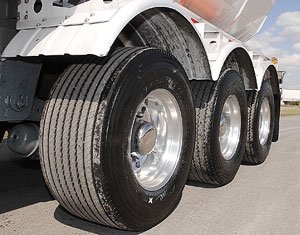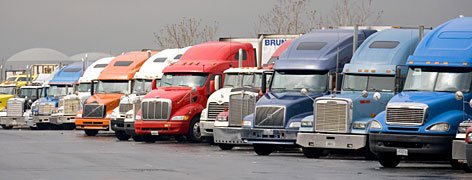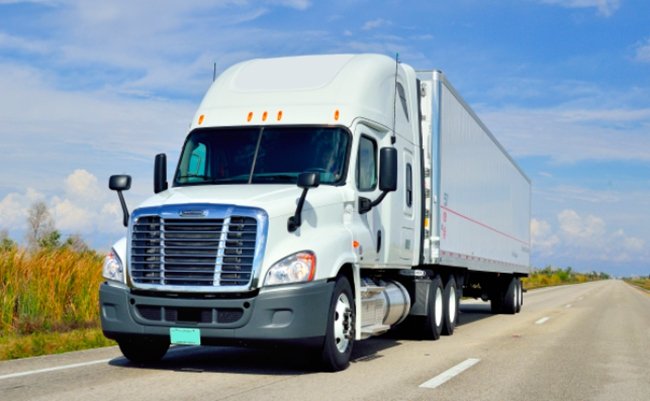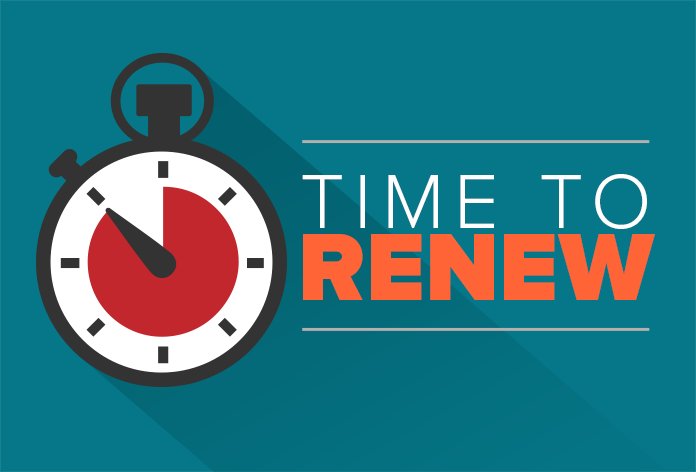Western Transportation Safety Consulting Ltd.
in Lethbridge
On January 03
at 2:26 PM
As a driver, is the relationship between you and your dispatcher a good one? Do you have a "boss from hell" story? Read Joanne Ritchie's take on why we may need more than the law to help end bullying in the industry Putting the boots to bullying: When Patty Hajdu, Minister of Employment, Workforce Development and Labour, unveiled new legislation in early November aimed at cracking down on harassment in federal workplaces, it went largely unnoticed in the trucking world. If you work in a trucking operation that crosses provincial or international borders, you are among a number of federally-regulated industries, like banking, telecommunications, and others, that are covered by the Canada Labour Code, so the upshot of this regulatory overhaul will apply to you. The legislation follows a year-long government consultation which set out to shed light on the prevalence of bullying, sexual harassment, and violence at work in Canada. What emerged from the series of discussions and surveys is that millions of Canadian men and women say they are victims of, or witness, bullying and harassment of one kind or another in the workplace, on a daily basis. Issues of harassment and violence in federally-regulated workplaces are already covered in a number of separate labor standards under the Canada Labour Code, but the Code clearly isn’t working to make things better for large numbers of Canadian workers and employers. To begin with, much workplace harassment goes unreported; the most common reasons for workers not reporting an incident or situation of harassment are fear of retaliation, or concern that they will lose their job. As well, when complaints are brought forward, they are often not taken seriously, and thus not dealt with effectively. For the 92% of Canadian workers who aren’t covered by federal regulation, employment standards that regulate conditions of work are defined by provincial or territorial ministries of labour. But slogging through the complex, multi-layered pieces of legislation at these levels, trying to understand how each handles the various types of harassment, can be a real challenge. Certain laws regarding harassment and discrimination fall under human rights legislation in Canada, and aren’t addressed at all at the provincial level. A couple of provinces have made prohibitions against workplace bullying and harassment expressly clear, but for others, it often falls under the general duty of employers to protect employees from risk at work, and isn’t specific to, say, bullying. Bullying is an interesting example; when we hear about bullying, we immediately think about children in the schoolyard or teens and cyberbullying. But workplace bullying is very real. Some examples of bullying or “psychological harassment” at work include rude or offensive remarks, ridicule, shouting abuse, or making fun of personal choices, but also include belittling or ignoring employees, assigning unreasonable duties or workload in a way that creates unnecessary pressure, or setting impossible deadlines. Does any of this sound familiar? Drivers have been telling me for years about incidents that are clearly abuse or harassment, often perpetrated by a co-worker, but just as likely to come from an individual in a position of authority. For example, dispatcher/driver relationships are often seen as coercive with a one-sided power balance; I don’t think I’ve met a driver who doesn’t have a “dispatcher from hell” story. And what about those times drivers have been expected to use equipment that may have a defect? This is clearly a safety issue, but if the driver feels pressured or coerced, is it bullying? So, are tougher laws the answer? Raising awareness and getting the conversation going is never a bad thing, but this complex issue needs a multi-faceted approach by government, labor, employers, workers and the public. The law may provide a supporting context, but can it really regulate employer-employee relationships or repair a dysfunctional corporate culture? Recognizing workplace harassment as not only an issue of social justice, but an issue of economic prosperity as well might be a good beginning. Companies need to be aware that there is a strong economic argument to creating safer, harassment-free workplaces. Companies that have high degrees of harassment, and bullying tend to also have high levels of absenteeism, poor mental health among workers, lower productivity, and rapid turnover. Companies that take care of employees and foster healthy environments tend to not only attract the best talent, but to keep it as well. Perhaps recognizing the recruitment and retention implications of the issue might be just as effective as tougher legislation when it comes to trucking. See the full article as sourced from Truck News at: https://www.trucknews.com/features/putting-boots-bullying/?utm_content=bufferfcbf1&utm_medium=social&utm_source=facebook.com&utm_campaign=buffer

Western Transportation Safety Consulting Ltd.
in Lethbridge
On December 20
at 1:46 PM
Western Transportation Safety Consulting Ltd. will be closed December 25th and 26th, as well as January 1, 2018. Please note our special holiday hours on December 27, 28 and 29th where we will be open from 8 AM to 12:30 PM. From all of us at Western Transportation Safety Consulting Ltd., we hope you have a safe and happy holiday season!

Western Transportation Safety Consulting Ltd.
in Lethbridge
On December 20
at 10:09 AM
Canada to require ELDs by 2020. BRAMPTON, Ont. – On the day the U.S. electronic logging device (ELD) mandate went into effect, Canadian Transport Minister Marc Garneau gathered with trucking industry leaders bearing a gift, in the form of a law that would by 2020 require ELDs be used in Canada as well. “We’re constantly looking at how technology can improve road safety, and electronic stability control and electronic logging devices fit the bill,” said Garneau. “These new measures not only make trucks and buses safer, but they also have a trickle-down effect of making the roads safer for all Canadians.” It was a long-awaited and welcome announcement for many in the trucking industry, but a contentious requirement that is still loathed by many owner-operators, drivers, and small fleets. Garneau was accompanied at the launch, hosted by Trailcon Leasing, by Ontario Transport Minister Steven Del Duca, the only provincial transport boss who has yet to publicly endorse the mandate. “Ontario has a strong record of adopting and supporting initiatives that further improve road safety. Three years ago, our government became the first in Canada to publicly endorse the use of electronic logging devices,” said Del Duca. “I commend Transport Canada for taking this important step toward making these devices mandatory.” “Minister Del Duca has been a great partner for OTA in improving truck safety. ELDs are going to reduce fatigue in commercial drivers, which will have a positive impact on reducing distracted driving collisions and increasing safety for our sector,” added Ontario Trucking Association (OTA) president Stephen Laskowski. The OTA and the CTA have been pushing for an ELD mandate in Canada for years, and OTA said after the announcement that it wants to see the regulation enforced as soon as possible. That wish was echoed by CTA chairman Gene Orlick. “CTA knows Minister Garneau wants to see enforcement of this important safety regulation as soon as possible. During the comment period of the Canada Gazette I process, our sector will be working with all provincial stakeholders to support Minister Garneau’s safety vision,” said Orlick, who is owner and president of Orlicks Inc. in Calgary, Alta. “The U.S.’s experience in implementing ELDs has shown us that even with two years to prepare, there will be some in our sector that never choose to comply in time. While we need to be respectful of the transition-time requirements of ELD implementation to businesses and governments, we also must not manage to the lowest common denominator and ensure everybody is fairly complying with the rules.” However, the Canadian mandate won’t require ELDs to be used until 2020, with existing devices permitted until 2022. In addition to Orlicks, other carriers were also represented at the announcement, including Kriska, Onfreight Logistics, Arnold Bros. Transport, and Kenan Advantage Group. The Private Motor Truck Council of Canada (PMTC) also welcomed the announcement. “The PMTC and its members are extremely pleased about this announcement,” said PMTC president Mike Millian. “Our membership has been involved in the consultations with the department and are firm believers that this regulation will benefit the entire industry. Electronic logs will make compliance easier to verify, ensuring all carriers are following the hours of service rules. This will result in a leveling of the playing field within the industry and improved road safety for all.” Read the full article here as sourced from Truck News: https://www.trucknews.com/regulations/canada-require-elds-2020/1003082366/

Western Transportation Safety Consulting Ltd.
in Lethbridge
On November 22
at 2:08 PM
FMCSA issues 90-day waiver to agricultural industry for ELD mandate. WASHINGTON, D.C. — The Federal Motor Carrier Safety Administration (FMCSA) announced three ways it is helping carriers ease into the electronic logging device (ELD) mandate set for Dec. 18. Even though carriers have had plenty of time to become familiar with the ELD mandate, Joe DeLorenzo, the head of the office of enforcement and compliance at FMCSA, said the administration is doing this to ensure “the smoothest and least intrusive way to implement this rule.” DeLorezo said that in order to help carriers, there will be an “ease of transition” period from Dec.18-April 1, where drivers who are caught without an ELD, but can show they are compliant with the current hours-of-service rules will not be placed out of service and violations will not count against carriers and their safety record. However, after April 1, DeLorenzo said drivers caught without an ELD “will be treated as not having a record of duty status and will be placed out of service.” DeLorenzo said the second thing the FMCSA will be doing in the next month is publishing a guidance regarding the questions and concerns regarding personal conveyance and ELDs. “We are going to publish some sort of contents on personal conveyance to explain to the industry our interpretation of when a movement by drivers is not subject to the hours of service regulation,” he said. “What this guidance will do is provide clarity and consistency across the industry.” Finally, DeLorenzo said the FMCSA is issuing at 90-day waiver to the agricultural industry, and specifically those carriers that haul livestock. DeLorenzo said that this waiver has more to do with hours-of-service than with ELDs specifically. As per the waiver, those agricultural carriers will be allowed to use a paper record of duty status for 90 days after the Dec. 18 deadline. “What (the waiver) will allow us to do is consider their situation in terms of hours-of-service,” he said of the agricultural industry. “First it’ll allow us to the time to consider the exemption request that has been filed on behalf of this industry… and the second thing the waiver will allow us to do is publish another guidance document that will be published for comment so we can hear from that industry.” Read the full article here as sourced from Truck News. https://www.trucknews.com/transportation/fmcsa-issues-90-day-waiver-agricultural-industry-eld-mandate/1003081936/

Western Transportation Safety Consulting Ltd.
in Lethbridge
On November 20
at 8:00 AM
November Reminder! Be prepared to renew your license by month's end if your LAST name starts with K or P. Western Licence & Transportation Services Ltd would also like to remind you that renewal notices are no longer sent in the mail. Go to http://www.wlicence.com/ to sign up for email reminders!

Page 6 of 20


